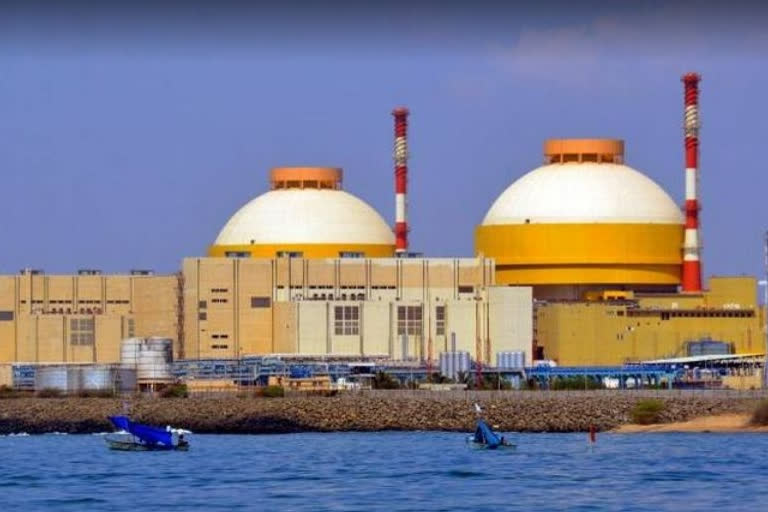New Delhi: India is set to add 15,700 megawatts of nuclear power generation capacity in the next ten years, which will take the country’s total nuclear power generation capacity to 22,480 megawatts by 2031, the government said. Nuclear power accounts for only a minuscule part of India’s total power generation capacity which is largely dependent on fossil fuel-based thermal power plants and renewable energy sources that include hydropower, wind power and solar power plants.
But the government has a roadmap to increase nuclear power generation by setting up new nuclear plants in different parts of the country, mostly in coastal areas due to the availability of seawater. At present, India’s nuclear power generation capacity is 6,780 megawatt which is just 1.7% of the total installed power generation capacity in the country.
Nuclear plants under construction
At present, there are six nuclear power plants in five locations across the country that are at various stages of construction or in the process of procurement of equipment. Each nuclear power plant has two nuclear reactors. The largest two reactors are located at Kudankulam in Tamil Nadu with a capacity of 1,000 megawatts each. These reactors are built with the help of Russia. In addition to the Kudankulam nuclear plant, the government is building two reactors in Karnataka’s Kaiga with a capacity of 700 megawatts each.
In Haryana, two nuclear reactors with a capacity of 700 megawatts each are being constructed in Gorakhpur. In Madhya Pradesh, the government is constructing two nuclear reactors – Chutka-1 and Chutka-2, each having the capacity to produce 700-megawatt electricity. In India’s desert state of Rajasthan, the government is constructing four nuclear reactors in Mahi Banswara as part of two nuclear plants with each reactor having the capacity to produce 700-megawatt electricity.
In addition to these six nuclear plants, the Centre has accorded administrative approval and financial sanction for setting up ten indigenous Pressurized Heavy Water Reactors (PHWRs) of 700-megawatt capacity each in fleet mode. With the construction of 6 nuclear power plants and ten indigenous reactors, the nuclear power generation capacity in the country is set to reach 22,480 megawatts by 2031.
In-principle approval
The Centre has also accorded in-principal approval for setting up of 28 nuclear reactors at five nuclear power plants with technological support from foreign nuclear companies. The largest among them would be the Jaitapur nuclear plant in Maharashtra which would be set up with the help of French nuclear company Areva. The plant will have six nuclear reactors with a capacity of 1650 megawatt each.
In Andhra Pradesh’ Kovvada, the government has approved setting up 6 nuclear reactors with a capacity of 1,208 megawatts each. In Gujarat, six nuclear reactors with a capacity of 1,000 megawatts each have been approved in Chhaya-MithiVirdi. The US would provide technological support for Gujarat and Andhra Pradesh nuclear plants. In West Bengal’s Hajipur, six nuclear reactors with the capacity of 1,000 megawatts each would be set up with the help of the Russian government.
In Madhya Pradesh’s Bhimpur, the government has granted in-principle approval for setting up six indigenous nuclear reactors with the capacity of 700 megawatt each. These five nuclear plants would add an additional 31,948-megawatt nuclear power capacity.
Also read: Nuclear winter should chill every leader to the bone


